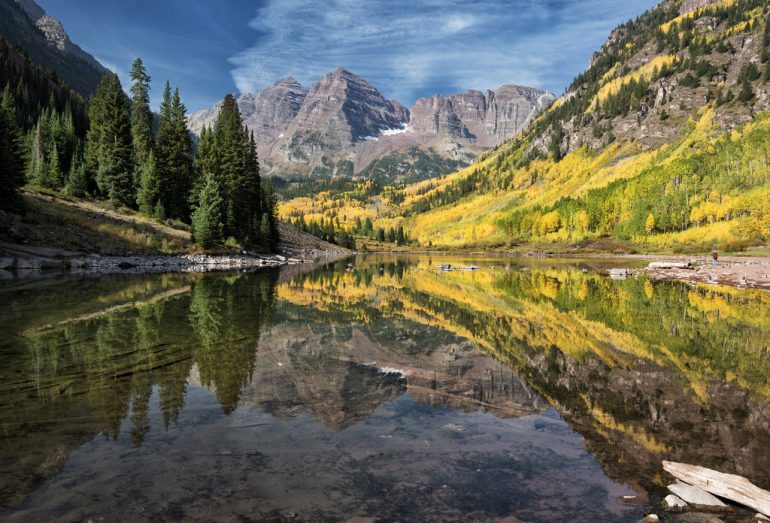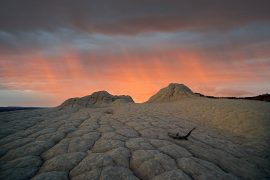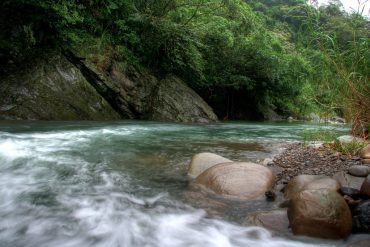[openquote] May the glory of the Lord endure forever;
may the Lord rejoice in his works—
who looks on the earth and it trembles,
who touches the mountains and they smoke.
I will sing to the Lord as long as I live;
I will sing praise to my God while I have being.
May my meditation be pleasing to him,
for I rejoice in the Lord.
Let sinners be consumed from the earth,
and let the wicked be no more.
Bless the Lord, O my soul.
Praise the Lord! [closequote]
Psalm 104:31-35
Today we come to the end of Psalm 104. Here the Psalmist lets lines of hope and praise have the final word, “May the glory of the LORD endure forever; may the Lord rejoice in his works…I will sing to the LORD as long as I live; I will sing praise to my God while I have being” (Psalm 104:31, 33). Think through the entirety of the psalm and how the psalmist has seen God’s great wisdom in all of creation, from stretching out the heavens like a tent to making the wind messengers to setting the earth on its foundations to appointing a boundary for the waters. Think over the many wonders the psalmist has seen, from springs gushing forth in valleys to birds singing among branches to the high mountains with moon overhead. Think of the many gifts of creation the psalmist has recounted, the waters giving drink to wild animals, the green grasses for cattle, the many plants that provide humans with bread, wine and oil, and even the prey for young lions. All of the wonders and gifts of creations lead naturally to praise.
A friend once pointed out that Psalm 104 is an almost entirely positive psalm. Almost. There is that one part at the very, very end: “Let sinners be consumed from the earth, and let the wicked be no more” (Psalm 104:35). They then told me to read through the Psalm and see if there was any mention of wickedness in reference to creation or any of the many creatures listed. There isn’t. My friend’s point was that the only mention of wickedness is in regard to humans, creation and the creatures inhabiting it are wholly good (Genesis 1:31). As humans we are blessed with choice, we can choose to abuse creation or we can choose to be responsible stewards of it.
That last line stands as a warning of sorts: don’t let this beauty and these gifts slip from your sight and hands. It is not as much a threat as a reminder that we are intimately tied to the health of this planet, for better or for worse. While a healthy abundance can be had, abusive greed can lead to devastation and ruin.
I’ll end with these words from Steven Stoll, which fittingly capture this dilemma and the Psalmist’s ending caveat, “When it comes to the external consequences of how we live day to day, many people in developed countries refuse to draw a line between liberty and responsibility. It may be our liberty to create solid waste for landfills or to load carbon into the atmosphere by driving long distances, but when does it become our responsibility to act differently whenever possible?” [ref] Steven Stoll, Larding the Lean Earth (New York: Hill and Wang, 2002) 7.
Stoll’s books examines the historical results of unsustainable farming practices in various regions of 19th century America. Stoll also looks to other farming practices of the same era, elsewhere in the country, that were productive and sustainable as an example and model for us today.[/ref]
By William Wellman, ecotheo.org staff
Questions & Actions
- Read through the entirety of Psalm 104 (one last time!). Think over the many images the Psalmist uses to describe creation. Take some time to write about the many images of creation that have stuck out to you over EnviroLent. What brings you to praise?
- Verse 35 sticks out as a caveat of sorts, reminding us that as humans we have the capacity for care just as we have the capacity for destruction. In what ways do you participate in the abuse of creation? What things can you change? In what ways do you participate in caring for creation? How can you improve on these?
- As Lent comes to an end, find ways to make praise of creation part of your daily life. Incorporate into your regular readings other Psalms and Scripture which reflect on Creation. Make a point to routinely visit natural areas where you find the “grandeur of God.”





